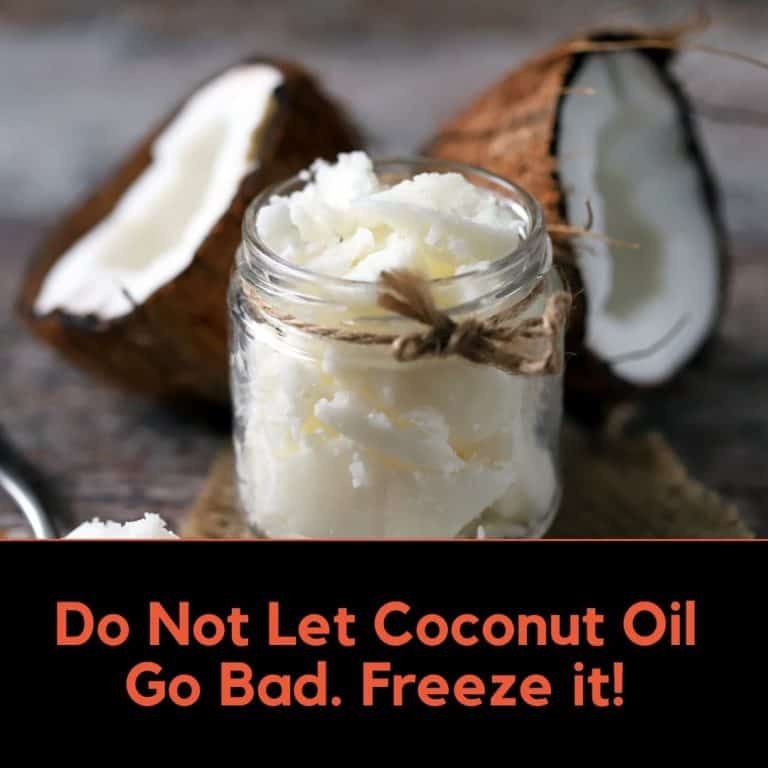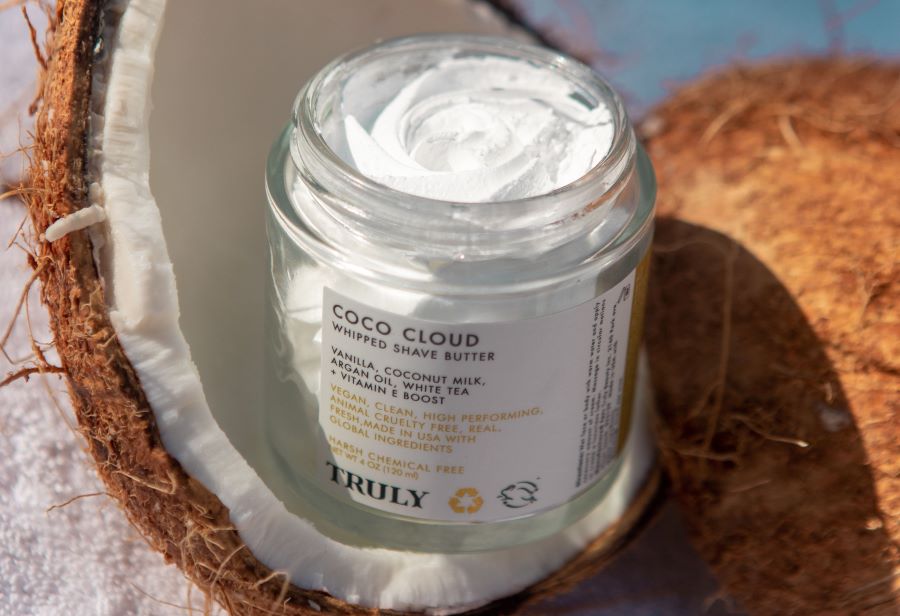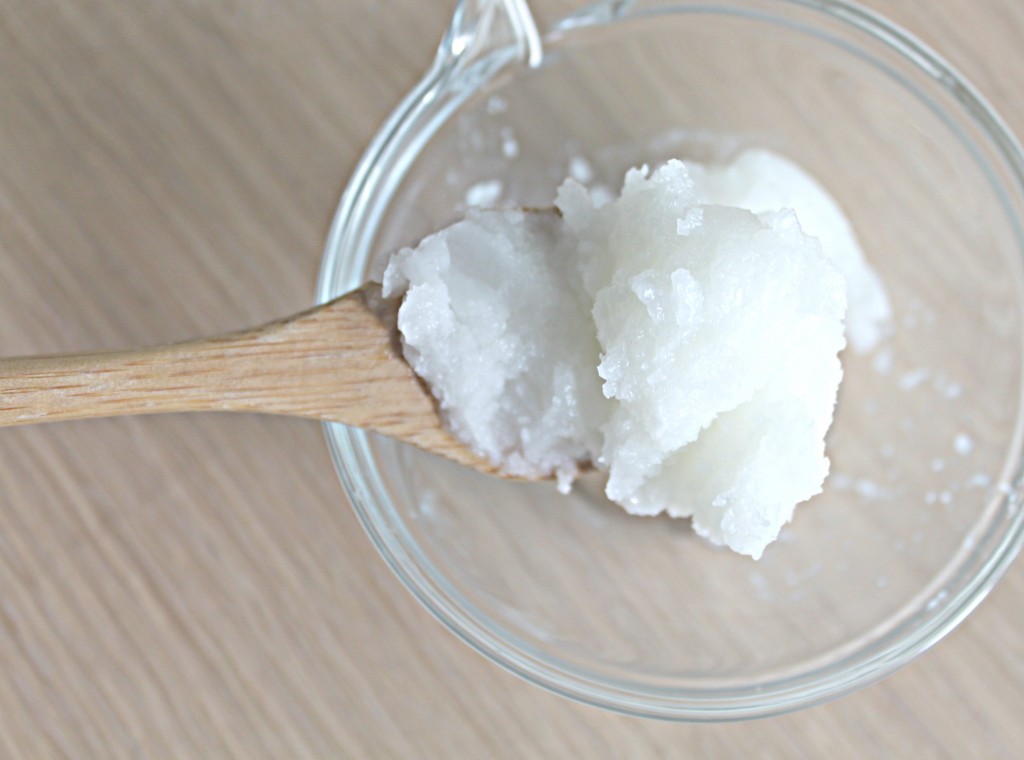Introduction
Coconut oil has become a staple in many households, revered for its versatility and health benefits. From cooking and baking to skin care and natural remedies, its uses are as abundant as its tropical origins. However, like all natural products, coconut oil isn’t immune to degradation over time. The question of “does coconut oil go bad?” is a pertinent one for consumers looking to maintain the quality and efficacy of this beloved oil.

In this comprehensive guide, we’ll explore the shelf life of coconut oil, the factors that influence its expiration, and how to discern if your coconut oil has turned. We’ll also provide practical tips on proper storage to extend its longevity and discuss alternative uses for coconut oil that may have passed its prime.
Understanding the nuances of coconut oil’s shelf life is essential for anyone looking to make the most out of this versatile product. Whether you’re a culinary enthusiast, a beauty aficionado, or someone exploring natural alternatives for household tasks, knowing how to identify and handle expired coconut oil can save you from potential spoilage and ensure you’re using the oil at its best.
So, let’s dive into the details and ensure your coconut oil remains a reliable and effective component of your daily routine.
How to Store Coconut Oil: The Ultimate Guide for Keeping It Fresh
Does coconut oil expire?

Understanding coconut oil shelf life
Yes, coconut oil can go bad, but coconut oil’s longevity is impressive, with refined varieties boasting a shelf life of up to 18-24 months and virgin coconut oil lasting even longer, potentially up to five years under optimal conditions.
The difference in shelf life between refined and unrefined coconut oil stems from their processing methods. Refined coconut oil, made from dried coconut meat or copra, undergoes additional filtering and bleaching, which can strip away some natural antioxidants that contribute to longer shelf life.
In contrast, virgin coconut oil is extracted from fresh coconut meat, retaining more of its natural antioxidants and thus, its freshness over time.
Proper storage is key to maintaining coconut oil’s quality, and understanding its shelf life helps consumers make informed decisions about purchase and use before it expires.
It’s important to note that while coconut oil is robust, it’s not impervious to spoilage. Various factors, including storage conditions and exposure to heat, light, and air, can accelerate the degradation process. To ensure you’re enjoying the full benefits of coconut oil, it’s crucial to monitor its condition throughout its lifespan.
By doing so, you can avoid the pitfalls of using rancid oil, which can negatively impact both taste and health.
Factors that affect coconut oil’s expiration
The expiration of coconut oil is influenced by several key factors that can either extend or reduce its shelf life. Temperature fluctuations are particularly detrimental, as they can trigger chemical reactions that degrade the oil more rapidly.
Consistent storage temperatures help maintain the oil’s stability. Additionally, cleanliness plays a crucial role; using clean utensils to scoop the oil minimizes the risk of contamination and mold formation. Air exposure is another enemy of coconut oil’s longevity, as it accelerates oxidation.
Keeping the oil sealed tightly is essential to prevent this process and preserve the oil’s quality for as long as possible. By understanding and controlling these factors, you can help ensure your coconut oil remains fresh and beneficial for an extended period.
Moreover, the type of coconut oil—whether refined or virgin—also affects its susceptibility to going bad. Virgin coconut oil, with its higher antioxidant content, is more resistant to spoilage compared to its refined counterpart.
Regardless of the type, however, proper storage is paramount. Ensuring that coconut oil is kept away from direct light and heat and in a sealed container can significantly delay its expiration.
Signs that coconut oil has gone bad

Changes in color and texture
One of the most telling signs that coconut oil has gone bad is a change in its color and texture. Fresh coconut oil should be clear in its liquid form and have a milky white appearance when solid.
If you notice that the oil has developed a yellow tint or has become blotchy or chunky, it’s a clear indication that the oil is no longer good for use.
These changes can result from the oil’s exposure to air, light, or varying temperatures, which can lead to oxidation and spoilage. Keeping an eye out for these visual cues can save you from using coconut oil that’s past its prime and ensure you’re using a product that’s safe and beneficial for your health and culinary needs.
Additionally, the presence of black oil spots or any mold growth is a definitive sign that the coconut oil should be discarded immediately.
These spots can be a breeding ground for bacteria and mold, which not only compromises the quality of the oil but can also pose health risks if ingested. It’s essential to regularly check your coconut oil for these signs, especially if it has been stored for an extended period or under less than ideal conditions.
By being vigilant about the color and texture of your coconut oil, you can prevent the unpleasant experience of using a rancid product and maintain the integrity of your dishes and health.
Unpleasant odor and taste
An unmistakable sign that coconut oil has spoiled is an unpleasant odor. Fresh coconut oil typically has a sweet, subtle aroma, or in the case of refined varieties, a neutral scent. If your coconut oil emits a sour or bitter smell, it’s a strong indicator that it has gone bad.
This off-putting odor is a result of the oil’s exposure to oxidation, which can occur due to improper storage or extended shelf life. Trusting your sense of smell can help you avoid the use of rancid oil, which could ruin your culinary creations and potentially affect your health.
Should the smell not be conclusive, the taste of the coconut oil can serve as a final verdict. Ideally, coconut oil should have a mild, pleasant taste. A sour or distinctly off flavor is a clear sign that the oil is no longer suitable for consumption.
It’s important to note that tasting should be a last resort, after visual and olfactory assessments have been made.
Mold growth
Another critical indicator of spoilage in coconut oil is the presence of mold growth. If you spot small patches or dark spots within your container, this could be a sign of mold development, which is a serious concern.
Mold in coconut oil not only affects the product’s safety for consumption but can also indicate deeper contamination that isn’t always visible to the naked eye. It’s imperative to discard any coconut oil with signs of mold immediately to avoid potential health risks.
Vigilance in checking for these signs is crucial, especially since coconut oil can sometimes be stored for long periods.
How to properly store coconut oil
Keeping coconut oil in the pantry
Storing coconut oil in the pantry is a practical choice for maintaining its quality and extending its shelf life. The key is to keep the oil in a cool, dark place, away from any direct light or heat sources that could accelerate the oxidation process.
An airtight container is essential to prevent exposure to air, which can also contribute to rancidity. By following these simple guidelines, you can ensure that your coconut oil remains in a stable condition, ready to be used in a variety of recipes or beauty routines.
Remember, while refrigeration is not necessary and can make the oil difficult to use due to solidification, it can be beneficial in warmer climates to keep the oil fresh for longer periods.
When choosing a spot in your pantry, opt for an area that stays consistently cool throughout the day. This consistency helps in preventing the coconut oil from fluctuating between liquid and solid states, which can happen if the oil is stored in a place with varying temperatures.
Although coconut oil has a low melting point and may liquefy at around 76°F, this change in state does not indicate spoilage. For more tips on optimal storage conditions and the effects of temperature on coconut oil, refer to expert advice from MyRecipes.
Refrigerating coconut oil
Refrigerating coconut oil is an option that can extend its shelf life, particularly in hot or humid environments where the oil is more susceptible to spoilage.
While refrigeration can lead to a firmer consistency, making the oil harder to scoop or measure, this is a minor inconvenience as coconut oil quickly melts upon heating.
If you do choose to refrigerate your coconut oil, ensure it’s in a tightly sealed container to prevent it from absorbing any odors and to maintain its freshness. For those living in warmer climates, refrigeration can help you achieve the longer end of the oil’s shelf life, as detailed by The Coconut Mama.
It’s important to note that while refrigeration is not a necessity for coconut oil storage, it can be a strategic choice for long-term preservation. If you decide to refrigerate your coconut oil, remember that it will solidify and may require some time at room temperature or a quick warm-up before use.
This method of storage won’t compromise the oil’s quality, and it will remain a versatile ingredient for your culinary and beauty needs.
Freezing coconut oil
Freezing coconut oil is another method to consider for long-term storage, especially if you don’t plan on using it regularly.
This process can preserve the oil’s freshness for an extended period, well beyond its typical shelf life. When freezing coconut oil, it’s best to portion it into smaller containers or ice cube trays for easy use later on.
Once frozen, the oil can be thawed at room temperature or gently warmed to return it to a liquid state before incorporating it into your recipes or beauty regimen. While not commonly necessary, freezing is a foolproof way to ensure your coconut oil remains usable for years to come.
Keep in mind that freezing coconut oil does not alter its beneficial properties, and it will retain its natural characteristics once thawed. This makes it a convenient option for those who have stocked up on coconut oil or do not use it frequently.
Using expired coconut oil

When it comes to using expired coconut oil, caution is key. If your coconut oil shows no signs of spoilage—such as a yellow tint, unpleasant odor, or mold growth—it may still be usable for non-consumable purposes.
Some individuals repurpose slightly past-date coconut oil for making soaps or as a natural moisturizer for skin and hair.
However, it’s crucial to ensure that the oil doesn’t exhibit any characteristics of rancidity before applying it to your body or using it in any homemade products. For those with expired coconut oil that still appears and smells fresh, a patch test on the skin or a small-scale soap batch could be a safe way to make the most of the product.
Nevertheless, when in doubt, it’s best to err on the side of caution and dispose of any coconut oil that’s past its expiration date, especially for culinary use. Consuming rancid oils can lead to health issues, and the risks far outweigh the benefits.
If you’re unsure about the quality of your expired coconut oil, resources like Street Smart Kitchen can offer guidance on identifying spoilage signs and the potential uses for oil that’s slightly past its prime. Remember, safety should always be your top priority when dealing with any expired food products.
Conclusion

In summary, while coconut oil is a versatile and durable product, it’s not impervious to spoilage. Proper storage is essential to extend its shelf life, whether in the pantry, refrigerator, or freezer.
If you encounter coconut oil that has surpassed its expiration date, assess it carefully for any signs of degradation before considering alternative uses.
For non-edible applications, expired coconut oil can still offer benefits, provided it remains free from rancidity and contamination. Always prioritize safety and when in doubt, consult reliable sources or opt to discard the oil to avoid any potential health risks.
Ultimately, the longevity of coconut oil depends on how it’s stored and handled. By following best practices for storage and staying vigilant for signs of spoilage, you can enjoy the myriad uses of coconut oil without compromising on quality or safety.
Whether for cooking, skin care, or even as a natural wood preservative or leather conditioner, coconut oil remains a valuable commodity in any household. For further information and expert advice on the shelf life and proper handling of coconut oil, resources like Street Smart Kitchen are invaluable.
Sources:
- https://www.tastingtable.com/679950/signs-its-time-to-throw-out-expired-coconut-oil/
- https://thecoconutmama.com/how-long-does-coconut-oil-last-after-opening/
- https://www.streetsmartkitchen.com/does-coconut-oil-expire/
- https://www.myrecipes.com/extracrispy/how-to-store-coconut-oil-so-it-doesnt-spoil
FAQ
How do you know if coconut oil has gone bad?
Rancid coconut oil will have an overly sour or bitter smell. Texture: Coconut oil will either be in liquid form or solid form, depending on whether you store it at room temperature or in the fridge. If the oil starts to look chunky, with an inconsistent texture, like curdled cream, it has likely turned bad.
Does coconut oil need to be refrigerated?
It’s good to keep coconut oil in a dark place for food safety reasons. However, it does not require any sort of special storage apparatus to keep it fresh for a long time. It can be kept with pantry products since it doesn’t require refrigeration but can also be stored in the refrigerator if you prefer it chilled.
Can fungus grow in coconut oil?
Antifungal experiments conducted on the coconut oil extract demonstrated that the lauric acid present in the extract retained its activity, effectively inhibiting the growth of three out of the four tested fungi.
How many years is coconut oil good for?
The Short Answer. In general, coconut oil’s shelf life is estimated to be about 18-36 months for refined coconut oil and three to five years for virgin coconut oil.
Originally posted 2023-12-11 08:58:44.

